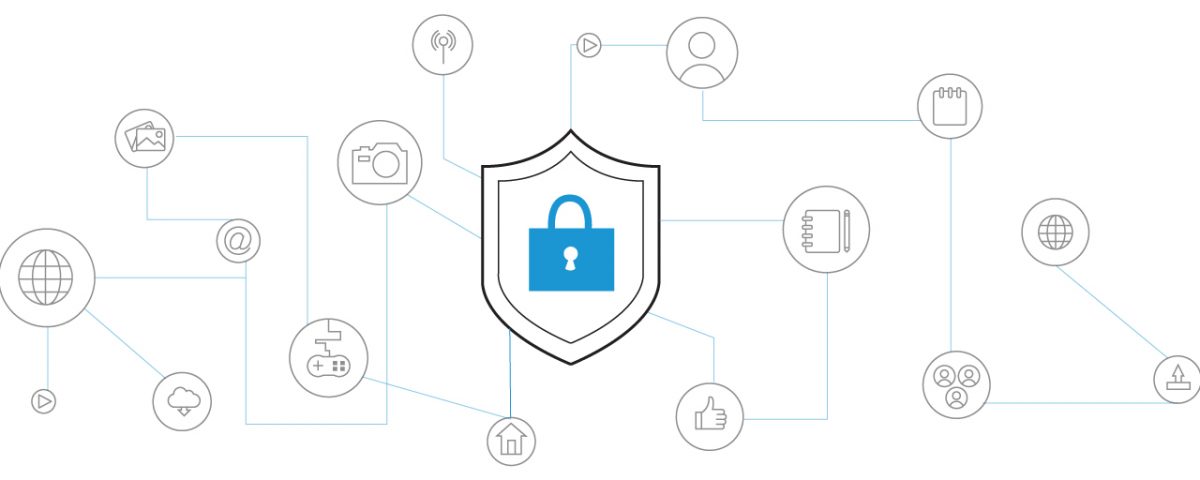Is Your Guest Network Exposing You to Hackers?

Most people would agree that keeping their personal information secure is a priority. In the digital age, the same should be said about keeping your home Wi-Fi network secure. Malicious bots, hackers, and malware are all too familiar as we increasingly trust and depend on our networks to house sensitive personal data.
%
Don’t update their router firmware
%
Haven’t changed their router settings
%
Aren’t sure how to change their router settings
%
have changed their router’s default password
Current State of Network Security
As important as it is, many people don’t actively take precautions to keep their network secure. Broadband Genie conducted a survey of 2,205 users that shows 51% don’t update their router firmware, change the Wi-Fi network name or administrator password, check the devices connected to the network, or change the Wi-Fi password. 48% said they haven’t changed their router settings because they don’t know why they would need to. 34% said they aren’t sure how to change their router settings to update these fields. Only 18% of respondents have changed their router’s default admin account password, meaning they run with the factory set credentials and are easy targets for botnets and other malicious activity.
Many people establish a guest network as a security precaution. Guest networks make sense in theory. A guest network offers a simple way to provide your visiting friends and family an Internet connection without giving them access to your primary network. The guest network operates as a separate network from the primary network. The limited access on a guest network was thought to protect the main network from infected devices and keep your smart home devices secure. Unfortunately, software-based network isolation in guest networks isn’t hacker proof as people were lead to believe. New research from Israel’s Ben-Gurion University of the Negev shows that enabling a guest network actually makes networks vulnerable. The study found that if a hacker launches a cyber-attack by overloading the router on the guest network, the router internally uses the main network to manage its performance, making the main network vulnerable to data leaks or malicious hacking. Guest networks are easy targets for hackers as they are often poorly secured and create an avenue into the primary network while bypassing software-based security solutions. In addition, there is even vulnerability when the guest network is not connected but has internal only connectivity. The researchers surveyed a variety of brands at different price points and all proved to have the same vulnerability.

IoT Devices and Network Security
There are expected to be more than 64 billion IoT devices worldwide by 2025. Currently 127 new IoT devices connect to the Internet every second. With this many connected devices, it becomes both critical and complicated to manage from a security standpoint. Guest networks used to be an easy way to connect IoT devices to a restricted access network, simply connect and forget. Consumers are already weary of the privacy and security details that come with IoT devices. Those devices may also make your home network vulnerable to a host of other malicious cyber activities.
Solutions to Simplify Home Network Security
Your router offers a variety of tools to keep your network secure, including:
Updating router firmware
Changing Wi-Fi network name
Changing the Wi-Fi password
Changing admin password
Among respondents from Broadband Genie’s survey, 34% were unsure how to implement the suggested changes above to their Wi-Fi router, 6% couldn’t find clear instructions to guide them in the process, and 3% found the router software to be confusing. Considering the degree of personal information at risk in the event of a cyber threat, consumers must take a more active role in securing their network. While there is no such thing as a hacker proof router, implementing any of these tools could prevent a cyber-attack from occurring:
1. Use a managed Wi-Fi system like Optim™. Managed Wi-Fi services allow you to actively monitor your network, get notified of any suspicious activity, enable advanced security settings, and connect directly with your Internet service provider for comprehensive troubleshooting. Managed Wi-Fi demystifies network security, making it both accessible and actionable from an easy-to-use dashboard.
2. Turn on your router’s built-in firewall to help reduce your network’s visibility. When your network is hidden, it’s harder for hackers to target.
3. Consider using an encrypted personal VPN service. Virtual private networks (VPN) randomizes your location with a proxied IP address and uses strong encryption to protect your network traffic. VPNs often have a monthly fee.
4. Disable the “Admin via Wireless” feature on your router. By disabling this feature, you have to physically connect your router to your computer with an ethernet cable to access and change admin features on your wireless router. This prevents a hacker from accessing your router virtually and launching an attack on your router. This method is especially useful if you’re not in the habit of changing your router’s admin login credentials.
Securing your network may seem like a daunting task, but it’s essential to discourage hackers and other threats from attempting to get into your network. By implementing the tools listed above, you can safely and securely online shop, manage your banking, and connect all your smart home devices. While your guest network may seem like a good idea, it may be a weak point in your network. Researchers suggest disabling guest networks until there is a solution to the security concerns.
Optim™ Managed Wi-Fi solution is available through reputable Service Providers. You can learn more about home networking and Wi-Fi security with Actiontec’s Complete Guide to WiFi Networking.
For the latest news in technology, check out Actiontec’s blog.
The post Is Your Guest Network Exposing You to Hackers? appeared first on Actiontec.com.


